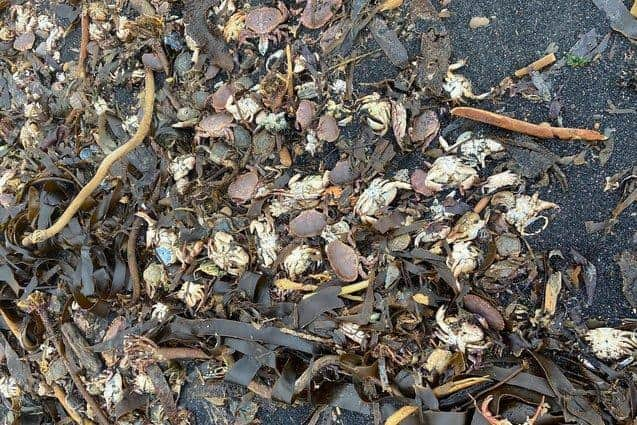Mystery crab and lobster deaths: Government agrees to re-investigate after Whitby fishermen conduct their own probe
Earlier this month DEFRA announced that after extensive testing following the first reports of mass crab and lobster deaths around the Tees Estuary last autumn, they had traced the cause to toxic algae which had been dispersed naturally by a storm in October.
The dead crustaceans were found from Hartlepool all the way down to Staithes and Whitby on the Yorkshire coast.
Advertisement
Hide AdAdvertisement
Hide AdTheir scientists had ruled out other rumoured causes, including a chemical pollution event, disturbance caused by dredging, disease and undersea cables.


However, they have now agreed to conduct further tests after shellfish crews claimed they were still recording extremely poor catches and struggling to make an income. Others reported more dead crabs and lobsters still being caught in their pots.
A DEFRA spokesperson said: “Further scientific work is required to continue to examine the ongoing impact of this incident and we will continue to update industry on next steps as work continues.
“Significant testing and modelling previously ruled out a number of potential causes including chemical pollution, sewage, animal disease or dredging.
Advertisement
Hide AdAdvertisement
Hide Ad“However, although healthy crabs and lobsters have been recorded in the area, we are aware that there have been reports of further dead or dying lobsters and crabs found in a small number of pots along the North East coast this week, and will be undertaking additional sampling of crab and lobster within the incident area to investigate.”
A fishermen's union called the North East Commercial Fishing Collective, which includes members of the Whitby Fishermen's Association, had refused to accept the investigation's outcome and crowdfunded a £5,000 fee to hire marine pollution consultant Tim Deere-Jones to independently analyse samples.
Mr Deere-Jones concluded that a chemical called pyridine was behind the deaths. DEFRA had already said that pyridine was present in crab tissues tested, but said this was linked to natural processes rather than environmental factors and that it was also found in control samples of crabs taken from non-affected regions.
Pyridine is released as a waste product from a number of different industries. Mr Deere-Jones added that there could be historic deposits of the chemical dating from the Tees' days as a highly polluted river that had been disturbed by recent dredging work.
DEFRA also denied claims that other species, such as birds and seals, had been affected.
